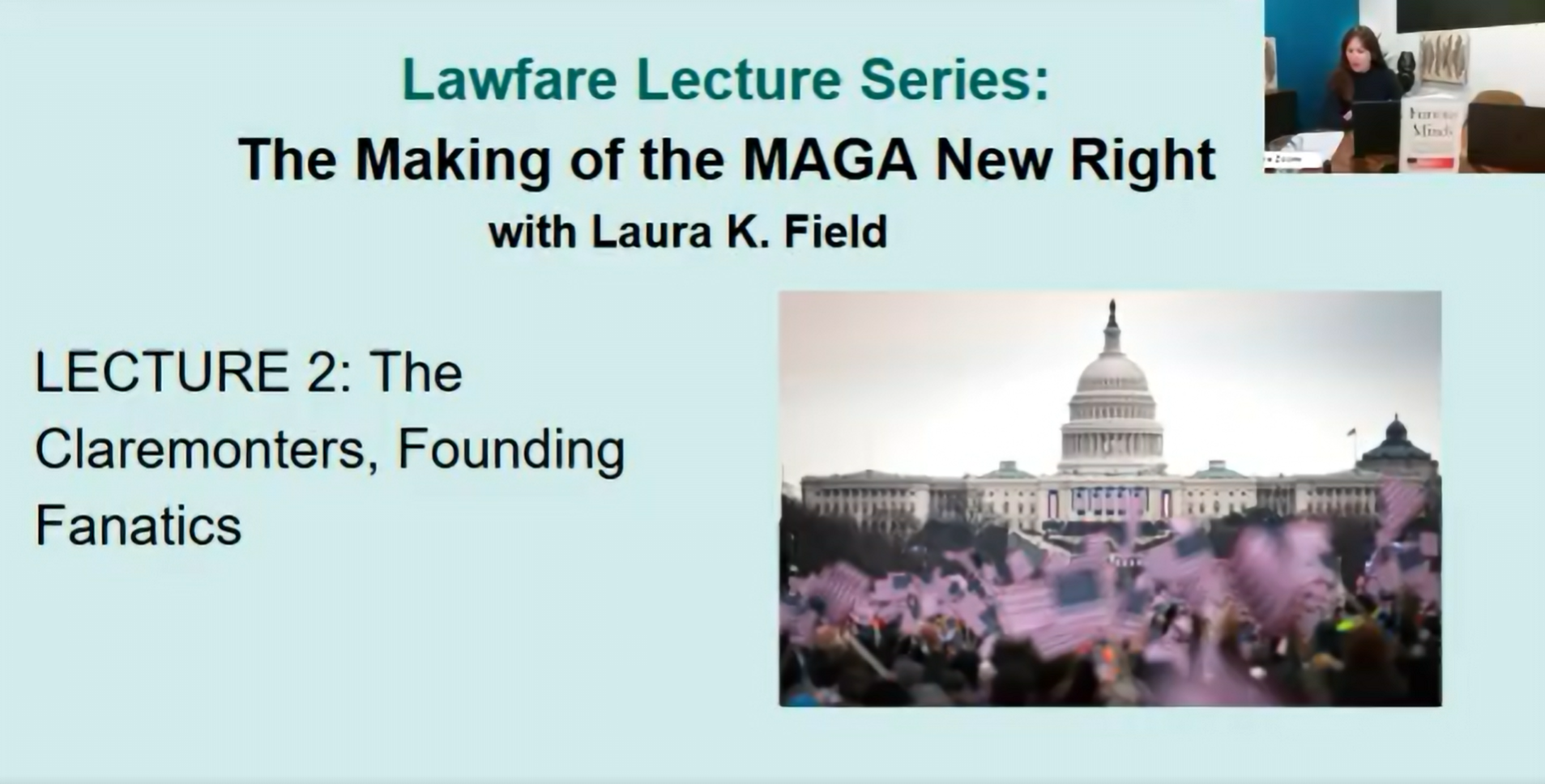The Week That Was: All of Lawfare in One Post
The Justice Department Inspector General’s report on the FBI’s handling of the Clinton email investigation continued to make headlines this week. On Saturday, Carrie Cordero, Quinta Jurecic, Marty Lederman, and Benjamin Wittes tackled the report and its implications on the Lawfare Podcast.
Published by The Lawfare Institute
in Cooperation With

The Justice Department Inspector General’s report on the FBI’s handling of the Clinton email investigation continued to make headlines this week. On Saturday, Carrie Cordero, Quinta Jurecic, Marty Lederman, and Benjamin Wittes tackled the report and its implications on the Lawfare Podcast.
On Monday, FBI Director Christopher Wray and Justice Department Inspector General Michael Horowitz testified before the Senate Judiciary Committee. The next day, Horowitz testified on his own before two House committees. Peter Margulies highlighted the FBI’s month-long delay in obtaining a warrant for the Weiner laptop, and Bob Bauer evaluated former FBI director James Comey’s commitment to a "higher loyalty."
The Supreme Court issued its long-awaited decision in Carpenter v. United States on Friday, with the justices voting 5-4 that law enforcement must seek a warrant for cell-site location information. Orin Kerr provided an initial question-and-answer post on the significance of the ruling. Sabrina McCubbin shared an in-depth summary of the case’s background, the majority opinion, and the dissents.
In other Supreme Court news, Matthew Kahn posted the decision in Ortiz v. United States, in which the court ruled that military judges can serve on two military courts without violating the congressional ban on dual-officeholding.
Immigration debates took center stage this week amid growing controversy over the Trump administration’s policy of separating migrant families at the border. Cordero outlined the legal implications of the practice. Barbara McQuade argued that Trump’s zero tolerance policy allows no room for prosecutorial discretion. And Victoria Clark and Jurecic began a resource page of legal documents from past and current litigation related to family separations.
On Wednesday, President Trump signed an executive order related to the policy of separating migrant families. Clark posted the order. Kahn laid out what is and is not included in the document.
Rational Security and Bombshell combined for a special edition podcast to discuss the new executive order. They also covered the possibility of a trade war with China and the announcement that caught sci-fi fans' attention this week: Space Force!
President Trump did not issue any additional pardons this week, but presidential pardon power continued to make waves. Mark Greenberg and Harry Litman laid out the problems with Trump’s use of this particular power, and Philip Bobbitt questioned why anyone thinks the president has the ability to pardon himself.
On this week’s Middle East Ticker, J. Dana Stuster updated us on the Hodeidah offensive in Yemen, the United States’ decision to withdraw from the U.N. Human Rights Council, and the critical upcoming election in Turkey. Kemal Kirisci, Jessica Brandt, and M. Murat Erdogan highlighted Turkey’s efforts to integrate 3.5 million Syrian refugees, and encouraged greater international cooperation. Geoffrey S. Corn and Margulies urged the Israeli Defense Forces to investigate the use of force along the Gaza border.
Lorenzo Vidino and Seamus Hughes analyzed the threat of prison radicalization. Daniel Byman wondered where the Islamic State is likely to emerge next. And Bennett Clifford looked at Russia’s counter terrorism efforts during the World Cup.
Robert Chesney and Steve Vladeck covered Zaidan v. Trump, the potential expansion of AUMF-covered associated forces, further delays in Doe v. Mattis, and much more on the National Security Law Podcast.
Charlie Dunlap critiqued the New York Times’ coverage of the U.S. military.
This week in cyber, Chesney dove deep on the 2019 National Defense Authorization Act. He praised Sen. Ben Sasse’s call for a bipartisan national commission to assess U.S. cyber strategy and also provided a close look at Section 1621 of the legislation. Nicholas Weaver warned against the danger of supply-chain attacks on the U.S. government.
Tim Maurer shared his new essay in the Hoover Institution’s Aegis Paper Series: “The Case for Pragmatism and an Opportunity for Sino-U.S. Leadership.”
Stewart Baker, Megan Stifel, and Gus Hurwitz talked ZTE, AT&T and Chinese hackers on the Cyberlaw Podcast.
Kahn posted the superseding indictment against Joshua Schulte for allegedly leaking CIA hacking tools to an organization thought to be Wikileaks.
On the latest Lawfare Podcast, James Baker, Susan Hennessey, Scott Tousley, and John Allen tackled the implications of artificial intelligence on national security issues.
This week in Guantanamo litigation, Kahn posted Judge Royce Lamberth’s decision that Military Commission Judge Vance Spath lacked the authority to hold Chief Defense Counsel John Baker in contempt. Additionally, the government filed a brief before the Supreme Court in opposition of Saifullah Paracha’s petition for a writ of certiorari. Clark posted the brief as well as other documents relating to Paracha v. Donald J. Trump.
Chesney drew our attention to a court ruling that flew under the radar: The U.S. District Court ruled on June 13 that courts should review the decision-making process when the U.S. government decides to target an American citizen under the AUMF.
Special Counsel Robert Mueller’s office was quiet this week, but John Bellinger made sure to highlight former Attorney General Dick Thornburgh’s op-ed in the Post titled “We Republicans Must All Speak Out to Protect the Mueller Investigation.” Paul Rosenzweig reflected on his previous assessment of the Manafort witness tampering allegations. And Walter Dellinger traced the complex history surrounding the question of whether the president can be indicted.
Clark posted a livestream of the Senate Intelligence Committee’s hearing on the policy response to Russian interference in the 2016 elections.
Finally, Michael Neiberg reviewed Lawrence Freedman’s “The Future of War: A History” and its arguments for a war of ideas, rather than a war of technology.
And that was the week that was.



.png?sfvrsn=bd249d6d_5)

